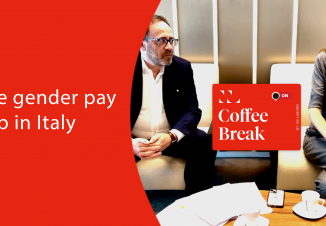
One of the measures the Italian government has introduced to combat the gender pay gap is the ‘pink sticker’ certification scheme, which is given to employers who meet certain criteria in relation to equal pay and advancement opportunities for men and women. Employers who are awarded the certification can benefit from social security tax relief. The relief is determined in an amount not exceeding 1% of the total social security contribution due by the employer within a maximum limit of EUR 50,000 per year. Eligible employers reduce their social security contributions for all the months of validity of the certification.
In addition to obtaining the so-called pink sticker, the benefit is subject to the employer having made regular social security contributions, the absence of violations of the fundamental rules on working conditions, and compliance with other legal obligations and collective agreements. For employers that employ more than 50 employees, the benefit is also subject to the presentation of the biennial report.
The social security authority (‘INPS’) has set deadline of 15 February for submitting applications for the tax exemption for companies that have obtained gender equality certification by 31 December 2022.
INPS clarifies that the application must be sent using only the online application form, and must contain specific information on the workforce and related salary data with reference to the period of validity of the equality certification.
Once forwarded, the application remains in the ‘Transmitted’ status until the end of the period established by INPS for collecting applications. At the end of the processing, the social security institution communicates at the bottom of the application the amount of the relief that can be used and, in the event that there is an insufficiency of the resources allocated for the financing of the measure (EUR 50 million), it will proportionally reduce the amount due to each applicant, in order to allow the widest access to the benefit.
The relief, as a generalized intervention, does not constitute state aid and can be combined with other exemptions or reductions in the contribution rates provided for by current legislation, within the limits of the contribution due and except for specific prohibitions on combining with other subsidized schemes.
For more information about compensation and benefits



